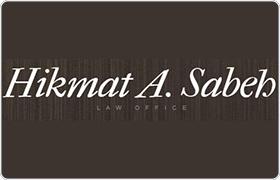Bergenfield Landlord-Tenant Lawyer, New Jersey
Sponsored Law Firm
-
 x
x

Click For More Info:
-
Law Office of Hikmat A. Sabeh
26 Park Street Suite 2076 Montclair, NJ 07042» view mapReal Estate Law Effective Legal Advice
We guarantee effective and aggressive representation. Our reputation and history of successful litigation speaks for itself.
800-881-0241
Jennifer M. Mendelsohn
Landlord-Tenant, Traffic, Criminal, Accident & Injury
Status: In Good Standing
FREE CONSULTATION
CONTACTJoseph A. DeFuria
Landlord-Tenant, Workers' Compensation, Corporate, Products Liability
Status: In Good Standing
FREE CONSULTATION
CONTACTRobert Matthew Dipisa
Landlord-Tenant, Litigation, Workers' Compensation, Corporate
Status: In Good Standing
R. Scott Fahrney
Landlord-Tenant, Construction, Federal Appellate Practice, Civil Rights
Status: In Good Standing
 Hikmat A. Sabeh Montclair, NJ
Hikmat A. Sabeh Montclair, NJ Practice AreasExpertise
Practice AreasExpertise
